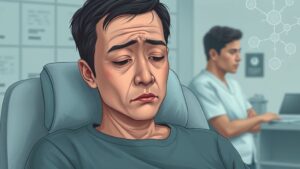Dengue fever, once regarded as a tropical disease limited to Southeast Asia and Latin America, has increasingly become a global concern, and New Zealand is not exempt. Although dengue is not endemic to New Zealand, sporadic cases are rising, mainly through returning travelers. In 2025, healthcare authorities issued new protocols to ensure swift diagnosis and treatment in hospitals across the country. Dengue fever in New Zealand hospitals
1. Understanding Dengue Fever in the New Zealand Context
What Is Dengue Fever?
Dengue fever is a viral illness transmitted through the bite of an infected Aedes aegypti or Aedes albopictus mosquito. The virus exists in four different serotypes (DEN-1 to DEN-4), and infection with one serotype does not provide immunity against the others.
How Common Is Dengue in New Zealand?
New Zealand does not have a native population of dengue-carrying mosquitoes, but dengue is notifiable under the Health Act. In 2024, over 230 dengue cases were reported, mostly from individuals returning from countries like Fiji, Thailand, and Indonesia.
Symptoms and Severity: When to Seek Hospital Treatment
Before delving into hospital care, it’s essential to recognize when hospitalization becomes necessary.
Common Dengue Fever Symptoms:
High fever (up to 40°C)
Severe headache (especially behind the eyes)
Muscle and joint pain (“breakbone fever”)
Nausea and vomiting
Rash
Fatigue
Warning Signs That Require Hospitalization:
Persistent vomiting
Severe abdominal pain
Rapid breathing or shortness of breath
Bleeding gums or nose
Blood in vomit or stool
Extreme drowsiness or restlessness
In New Zealand, these symptoms often prompt an immediate visit to the emergency department due to limited domestic exposure and unfamiliarity among the public.
Hospital Admission Process in New Zealand
Step 1: Triage and Initial Evaluation
Upon arrival at an emergency department (ED), patients are triaged. A recent travel history plays a vital role in suspecting dengue. The staff follows New Zealand Ministry of Health (MoH) infectious disease guidelines, which involve:
Isolation (if necessary)
Full symptom assessment
Immediate blood tests (CBC, liver function, dengue NS1 antigen, and IgM/IgG antibodies)
Step 2: Diagnostic Confirmation
Most public and private hospitals send samples to regional laboratories. A positive NS1 antigen test within the first 5 days confirms dengue early. IgM/IgG testing confirms past or ongoing infection, depending on the timeline.
Hospital Treatment Options for Dengue Fever
There is currently no specific antiviral medication for dengue fever. Treatment in New Zealand hospitals focuses on supportive care and monitoring complications.
A. Supportive Care Measures
1. Intravenous (IV) Fluids and Electrolytes
Dehydration is a serious concern in dengue. If oral hydration is inadequate, IV fluids such as normal saline or Ringer’s lactate are administered.
Monitored hourly
Adjusted based on urine output, hematocrit, and blood pressure
2. Pain Management
Paracetamol is the preferred painkiller. NSAIDs like ibuprofen and aspirin are avoided due to increased bleeding risk.
3. Fever Management
Tepid sponge baths
Antipyretics (paracetamol, 500–1000mg every 6 hours)
Cooling blankets in severe cases
B. Monitoring and Lab Support
Daily or twice-daily blood tests are conducted to:
Track white blood cells and platelets
Monitor hematocrit levels
Assess liver and kidney functions
C. Management of Severe Dengue
If the infection progresses to severe dengue, the following measures are taken:
1. Platelet Transfusions
Indicated when platelet count falls below 20,000/mm³ or if active bleeding occurs.
2. Intensive Care Unit (ICU) Admission
Patients with dengue shock syndrome or organ failure are moved to the ICU for:
Fluid resuscitation
Vasopressors to maintain blood pressure
Oxygen therapy or mechanical ventilation (if respiratory distress)
3. Hemorrhagic Management
Tranexamic acid for minor bleeding
Blood transfusions for severe hemorrhage
New Zealand Hospital Guidelines for Dengue Fever (2025 Update)
In 2025, the MoH released updated protocols, which include:
Mandatory reporting within 24 hours
Traveler screening at major airports (e.g., Auckland, Christchurch)
Isolation units in 5 major hospitals
Expanded lab capability for faster dengue confirmation
Public and Private Hospitals Handling Dengue in NZ
Here are some hospitals equipped to manage dengue fever:
Public Hospitals:
Auckland City Hospital
Equipped with infectious disease specialists and ICU dengue protocols.
Wellington Regional Hospital
One of the first to implement 24-hour dengue monitoring.
Christchurch Hospital
Houses a designated tropical disease wing since 2023.
Private Hospitals:
Southern Cross Hospitals
Offers travel medicine services, dengue testing, and inpatient care.
Mercy Hospital (Dunedin)
Accepts dengue patients with comprehensive aftercare.

Post-Hospital Recovery and Home Care
Recovery can take 2–4 weeks. Hospitals in New Zealand provide patients with post-discharge plans, including
Weekly follow-ups for 1 month
Repeat blood tests (to monitor platelets and liver enzymes)
Hydration and nutrition plans
Mental health support, especially for prolonged fatigue
Role of Travel Clinics and Preventive Measures
Many hospitals work closely with travel medicine clinics. Dengue prevention strategies include:
Pre-travel counseling
Providing DEET-based repellents
Advising mosquito net use
Encouraging early symptom recognition post-travel
Research and Future Outlook in NZ
With global warming and increased travel, New Zealand is funding research into:
Mosquito vector surveillance
Potential dengue vaccine implementation (e.g., Qdenga)
Public health education programs
Otago University and ESR (Institute of Environmental Science and Research) are leading these efforts in 2025.
Case Studies: Real-Life Experiences with Dengue Fever in NZ Hospitals
Understanding real-world experiences helps bring the clinical approach to life. Here are a few anonymized case studies that reflect New Zealand’s hospital response to dengue fever in recent years.
Case Study 1: Auckland Business Traveler Returns from Thailand
Patient Profile:
Age: 37
Travel History: 10-day trip to Bangkok
Symptoms: High fever, muscle pain, vomiting
Hospital Action:
Presented at Auckland City Hospital ER
Blood tests confirmed NS1 antigen positive
Monitored for 4 days with IV fluids and fever control
Outcome:
Discharged with a stable platelet count
Advised rest and weekly follow-up
Recovered in 2.5 weeks
Insights:
Early hospital visit and accurate travel history enabled quick diagnosis and avoided complications.
Case Study 2: University Student from Dunedin Returns from Fiji
Patient Profile:
Age: 22
Symptoms: Fever, rash, gum bleeding, fatigue
Delay in seeking care due to the assumption it was the flu
Hospital Action:
Emergency admission to Mercy Hospital, Dunedin
Platelet count dropped to 18,000/mm³
Received transfusion and ICU monitoring for 3 days
Outcome:
Recovered after 8 days of inpatient care
Required a 3-week leave from university due to fatigue
Insights:
Delayed treatment worsened the condition. Education on symptom urgency remains vital.
Mental Health and Post-Dengue Fatigue Syndrome
Dengue’s Lingering Effects
Even after viral clearance, many patients report prolonged fatigue, mental fog, and emotional distress — a phenomenon increasingly recognized as Post-Dengue Fatigue Syndrome (PDFS).
Hospital Mental Health Support
Major hospitals in New Zealand offer:
Counseling services through hospital psychologists
Support groups for returning travelers
Integration with primary healthcare for long-term monitoring
Patients are encouraged to speak openly about mental fatigue, especially if it impacts work, study, or personal life.

Dengue Management in Rural New Zealand
While urban hospitals are well-equipped, rural and remote areas face challenges:
Challenges:
Fewer infectious disease specialists
Delayed lab confirmation (samples may be sent to Urban Labs)
Limited ICU facilities
Solutions in Place:
Telehealth Support: Hospitals like Waikato Hospital offer teleconsultation to rural clinics.
Mobile Response Units: DHBs (District Health Boards) deploy mobile units during suspected outbreaks.
Dengue Alerts: GPs receive Ministry of Health travel alerts and guidelines to flag dengue symptoms early.
Community Education and Public Awareness Campaigns
Raising awareness is crucial in a non-endemic country. New Zealand’s MoH partners with travel agencies, airlines, and universities to educate the public.
Ongoing Efforts Include:
Posters at airports and ferry terminals
Social media campaigns targeting outbound travelers
QR code-based dengue symptom checklists
Bilingual resources (especially for Pacific communities)
Role of Pharmacists and Primary Care Providers
Community pharmacists play a supportive role in dengue management, especially post-discharge.
What Pharmacists Offer:
Rehydration advice and electrolyte solutions
Paracetamol counseling (avoiding NSAIDs)
Monitoring tools (e.g., thermometers, hydration trackers)
Referral to urgent care when symptoms worsen
Meanwhile, General Practitioners (GPs) are trained to recognize and follow up with dengue patients recovering at home.
Role of Travelers in Preventing Dengue Importation
As the first line of defense, travelers returning from endemic regions must remain vigilant.
Tips for Returning Travelers:
Report fevers immediately (even mild ones)
Avoid donating blood for 4 weeks post-return
Stay indoors or use mosquito repellents for 1 week to prevent secondary mosquito infection (should dengue-carrying mosquitoes arrive)
Log symptoms using a health tracking app recommended by the MoH

What’s Next? NZ’s Proactive Future Against Dengue
New Zealand is not resting easy. As climate change increases the possibility of Aedes mosquito migration, proactive policies are shaping the future.
Key Developments:
Mosquito Monitoring Stations: Launched in Auckland and Bay of Plenty in 2025
Vaccine Trials: Qdenga vaccine pilot programs for high-risk travelers
Border Biosurveillance Expansion: In partnership with Biosecurity New Zealand
These steps ensure the nation is not only reacting, but preparing.
Final Thoughts: Trust the System, Know the Symptoms, Act Early
New Zealand’s hospitals are equipped to deal with dengue fever, even though the country isn’t a typical dengue zone. The key is early recognition and proactive treatment. Whether you’re a local returning from travel or a visitor arriving in NZ, knowing what symptoms to look out for and trusting the healthcare system can make all the difference.
Conclusion: New Zealand’s Hospitals Are Ready, but Vigilance Is Key
While New Zealand doesn’t have endemic dengue, the healthcare system is well-equipped to manage imported cases. Public awareness, early symptom recognition, and robust hospital protocols ensure that patients receive effective care quickly.
If you’re returning from a dengue-prone region and feel unwell, don’t delay — New Zealand hospitals are prepared to help you recover safely.
FAQs: Treatment Options for Dengue Fever in New Zealand Hospitals
Q1. Can I get dengue fever in New Zealand?
Currently, local transmission is extremely rare. Most dengue cases in NZ are imported by travelers returning from overseas.
Q2. Which hospital should I visit for dengue symptoms?
You can visit any public emergency department. Major hospitals like Auckland City Hospital and Christchurch Hospital have established dengue protocols.
Q3. Do hospitals in New Zealand treat dengue with antibiotics?
No. Dengue is a viral infection, and antibiotics are ineffective. Treatment is supportive, focusing on fluid replacement, pain relief, and ongoing monitoring.
Q4. How long will I stay in the hospital with dengue?
It depends on the severity. Mild cases may be observed for 1–2 days; severe cases may require 5–10 days or ICU care.
Q5. Is treatment for dengue free in New Zealand public hospitals?
Yes, for NZ residents and eligible visa holders. Visitors may need travel insurance or pay out-of-pocket in private hospitals.

